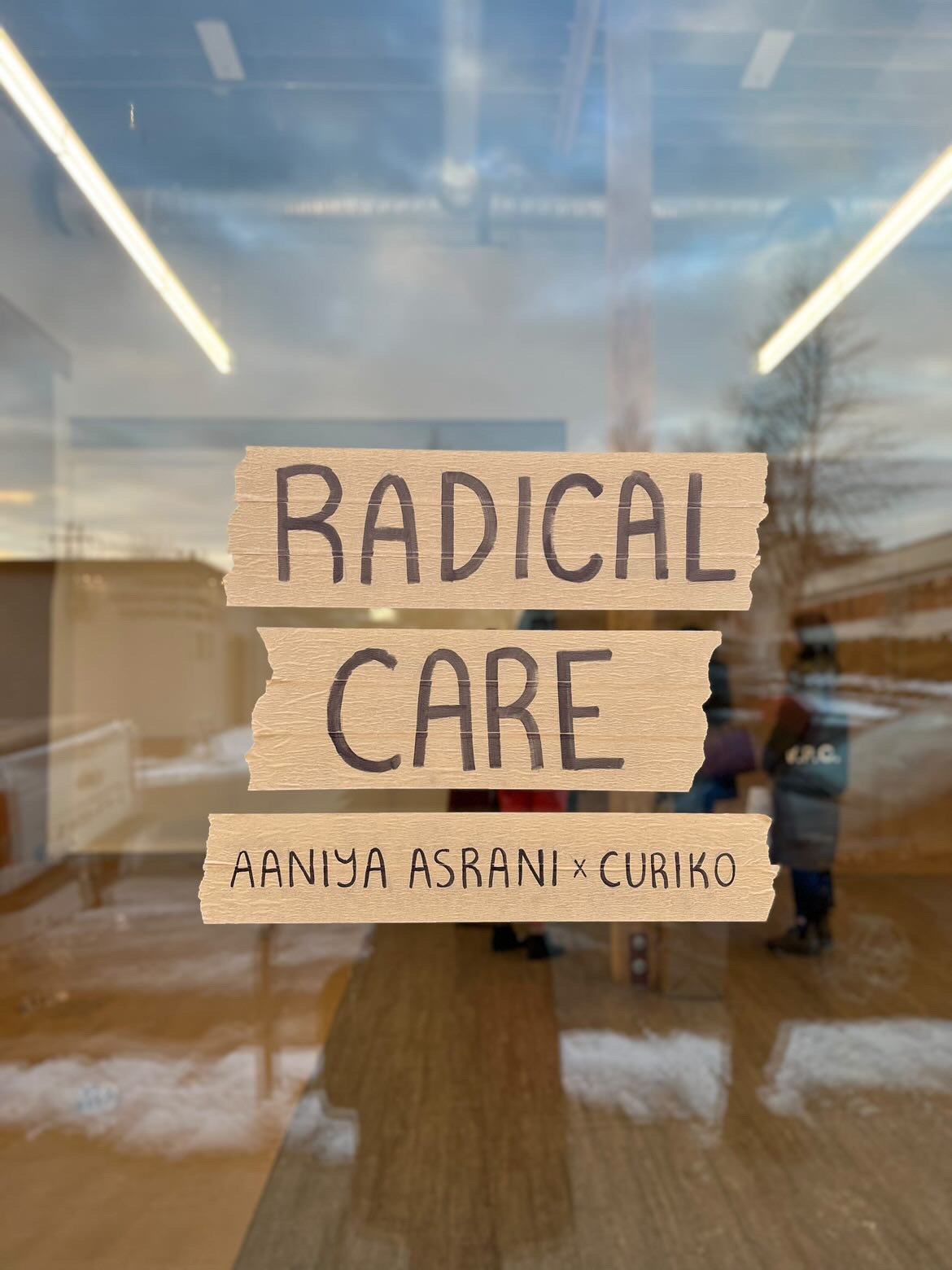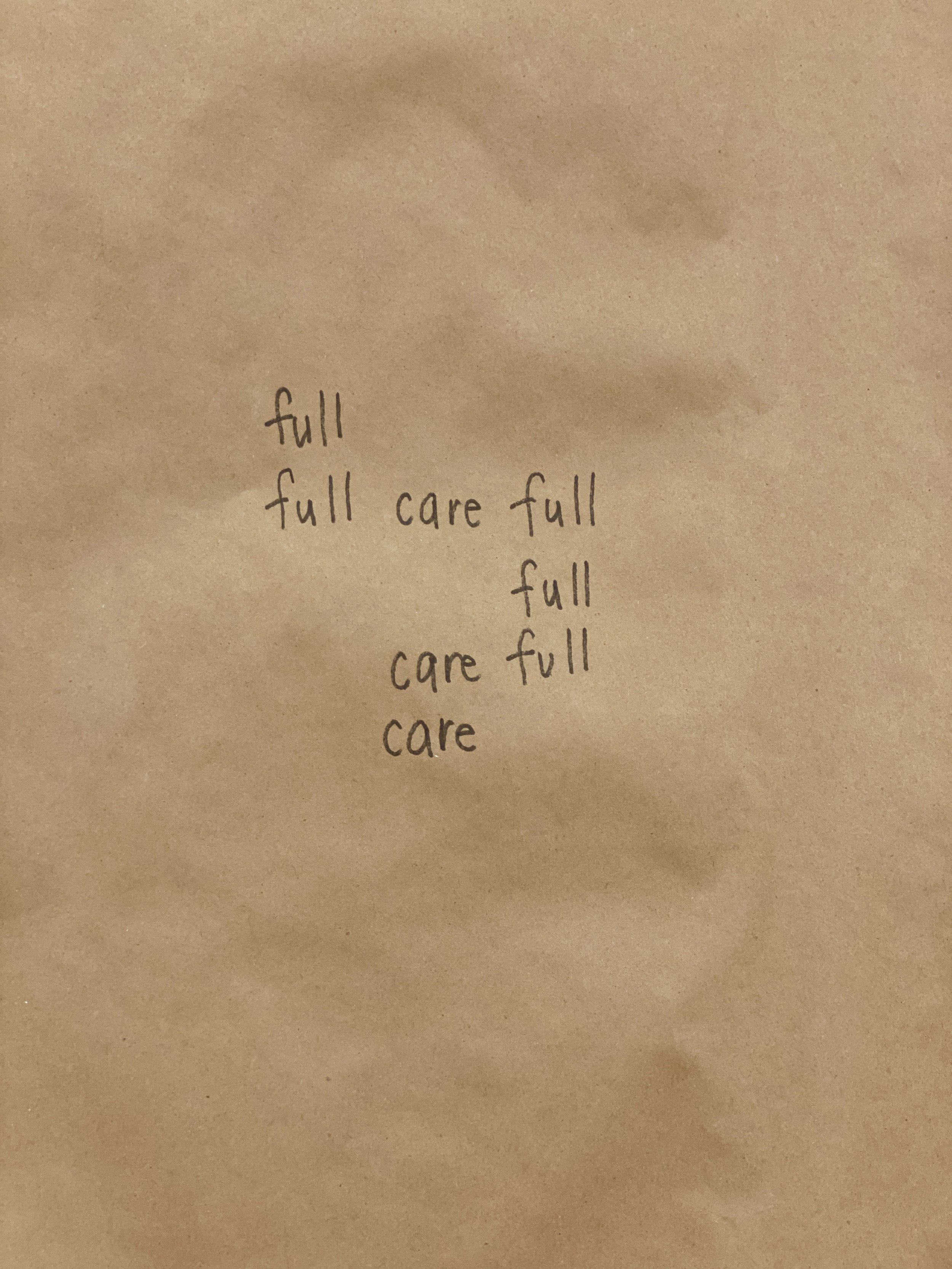Radical Care
Curiko is an experience platform for folks with and without disabilities that aims to create more moments of meaningful connection. One such moment was facilitated by their lead community artist, Aaniya Asrani in her Radical Care space.
Picture Credit: Yazmín Vasquez
Aaniya’s reflections:
In creating a space for Radical Care at Alternatives Gallery, I hoped to create an opportunity for dialogue, exchange and reflection with care at its core. To me, Radical Care is about extending the care we usually reserve for our intimate connections to strangers, to those who care for others and those in need of care. It is a practice in hosting a brave space that welcomes different perspectives to engage with one another as we reflect on roles, gestures or anecdotes to better understand what it means to care.
Over 5 days, the gallery evolved with every new person that entered it and stories about care filled the room from tip-to-toe. Upon walking into the space, visitors were enveloped in the colour brown, which to me represents warmth, being ‘of colour’, and the ground on which we stand. Clay was my co-facilitator, and allowed folks to give form to their stories in a way that was adaptable and accessible to them. The clay was arranged in the form of a wall of ‘Care Packages’, that visitors dismantled by being vulnerable alongside one another.
Small but significant moments were unfolding daily. People with and without disabilities making alongside one another, sharing stories of joy and sadness, enacting care in real time. Those walking past the gallery came back after they had finished their errands, or those who had already been, returned with friends or to add to their growing collections. Strangers were becoming friends and making plans to stay in touch. We spent hours listening and learning from each other, as the snow fell softly outside.
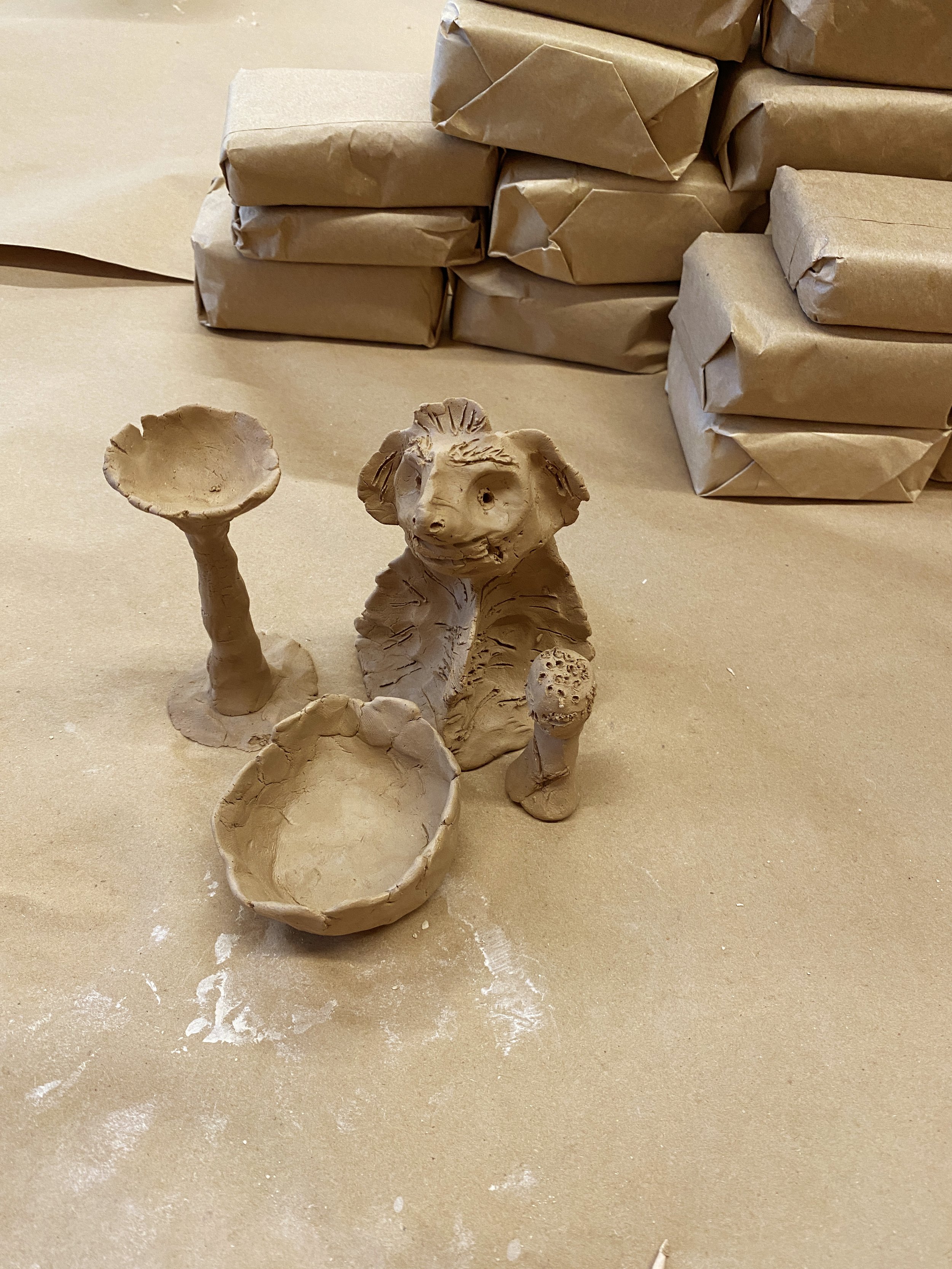
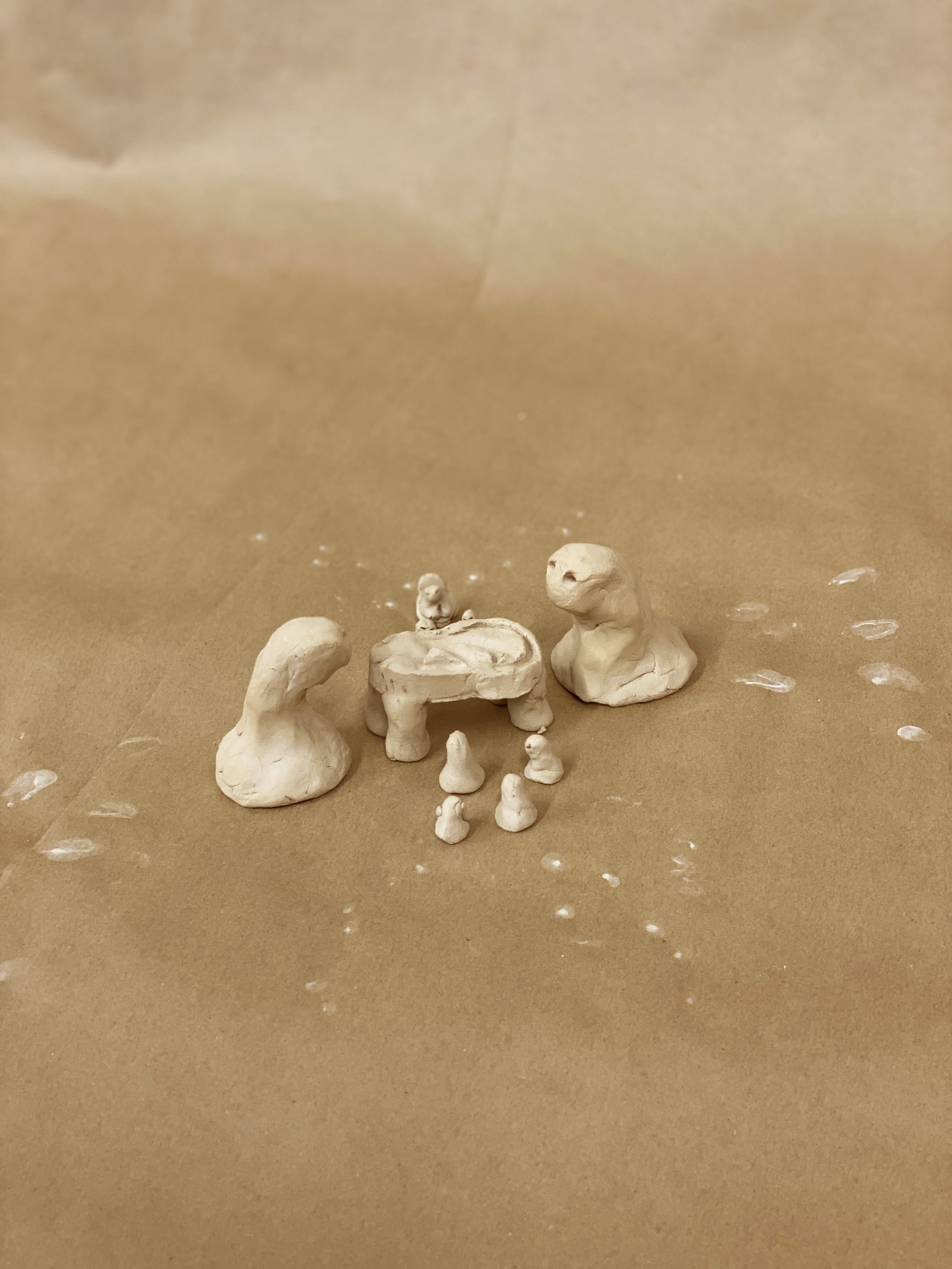
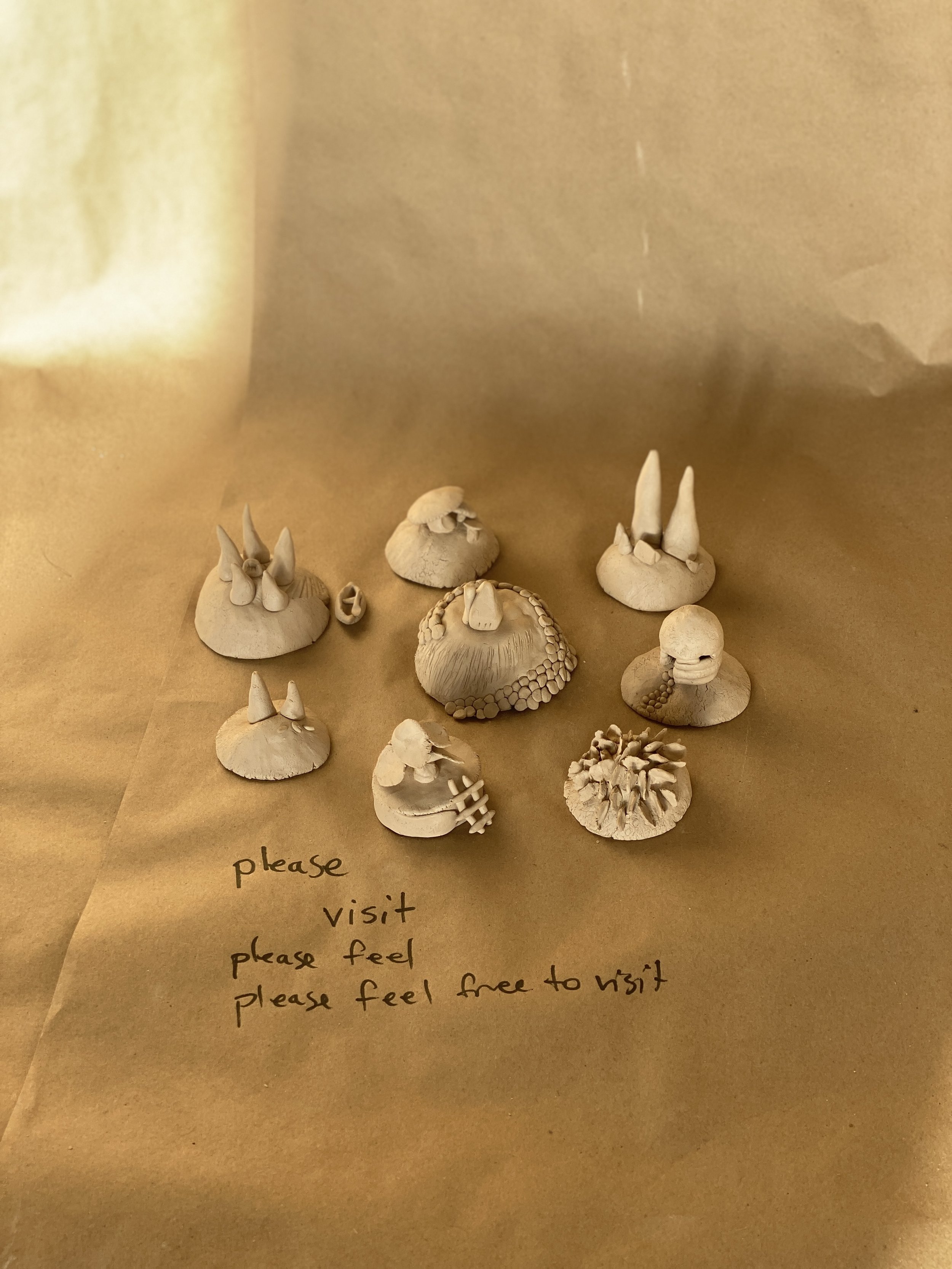
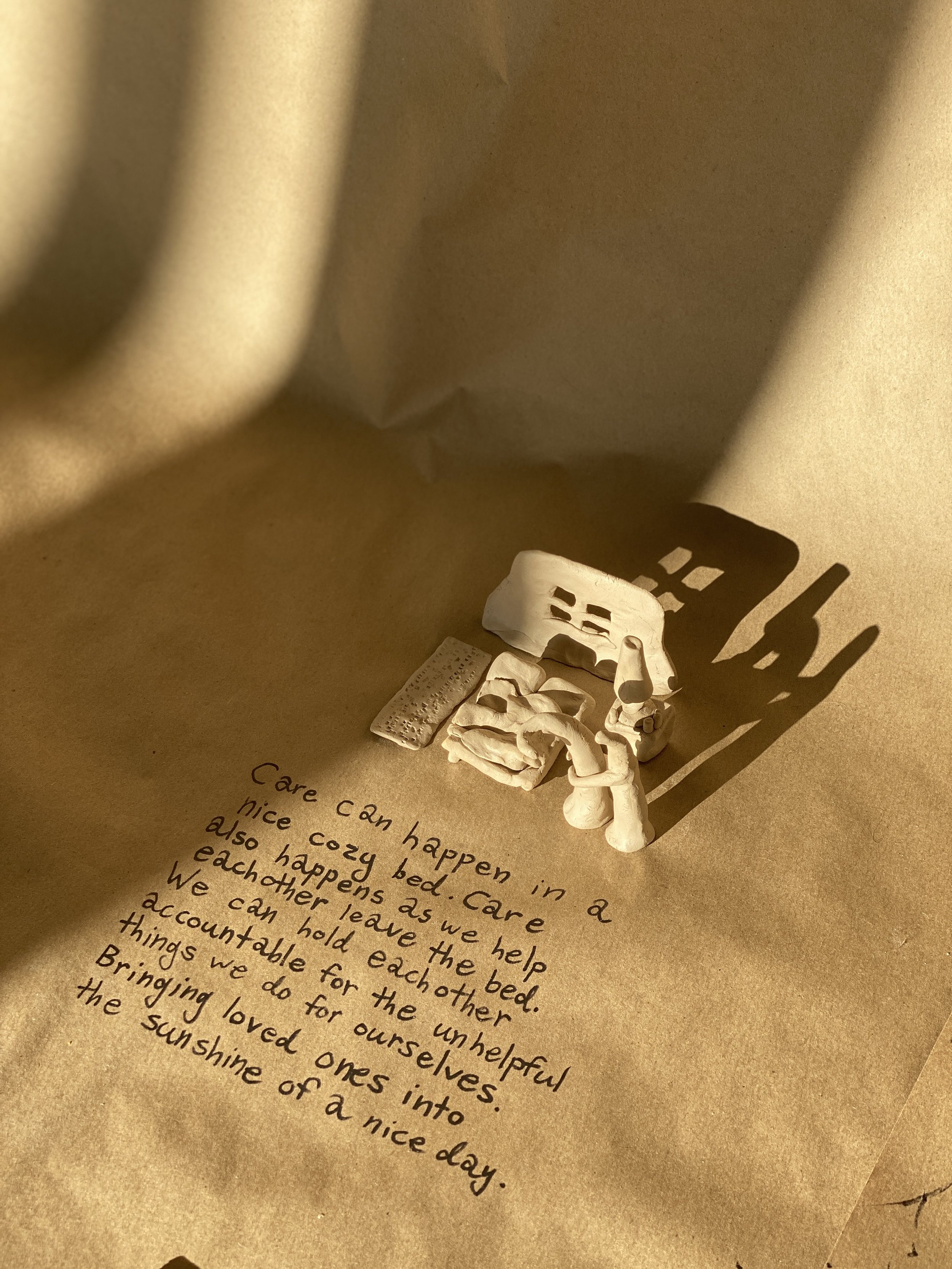
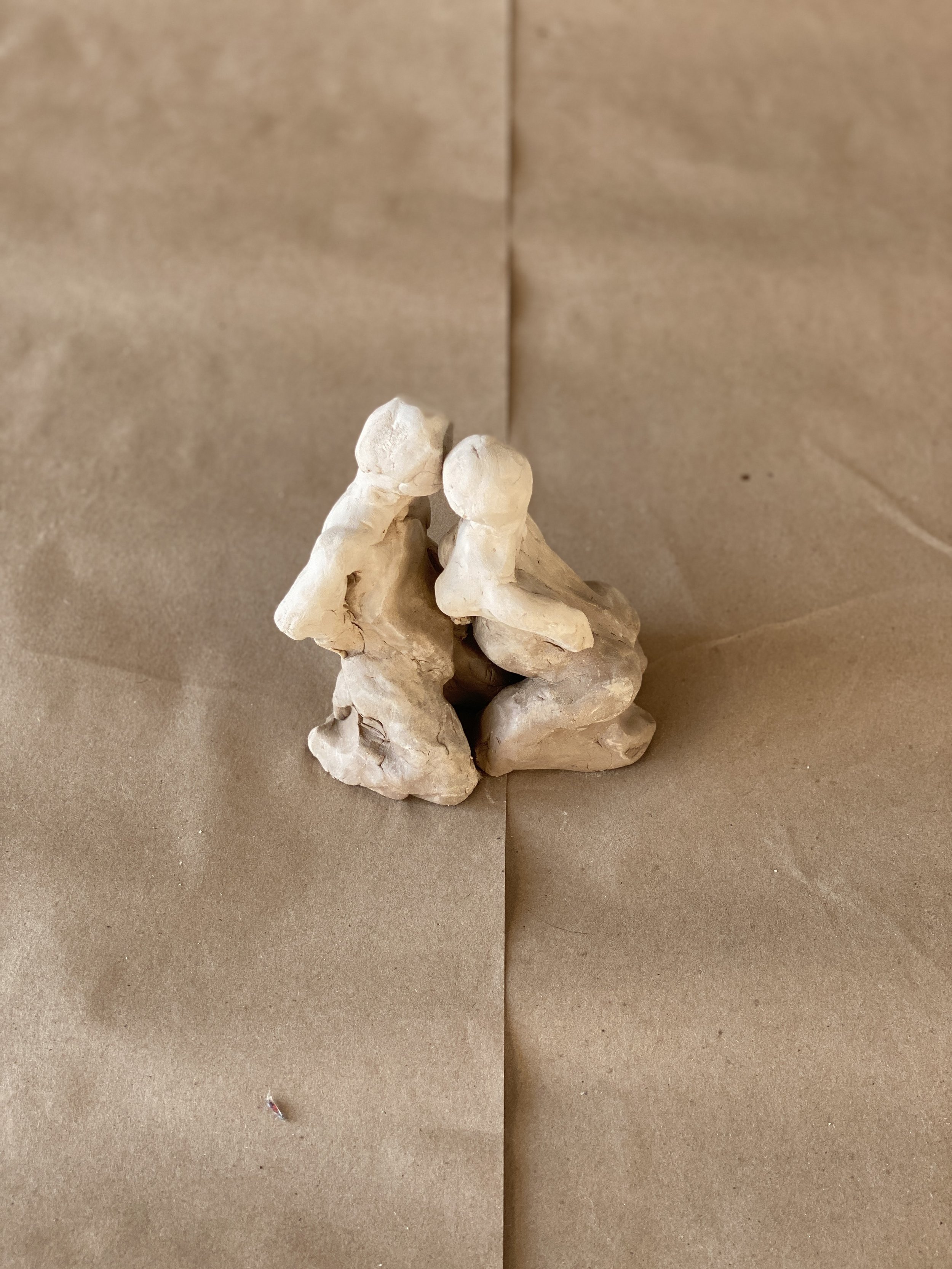
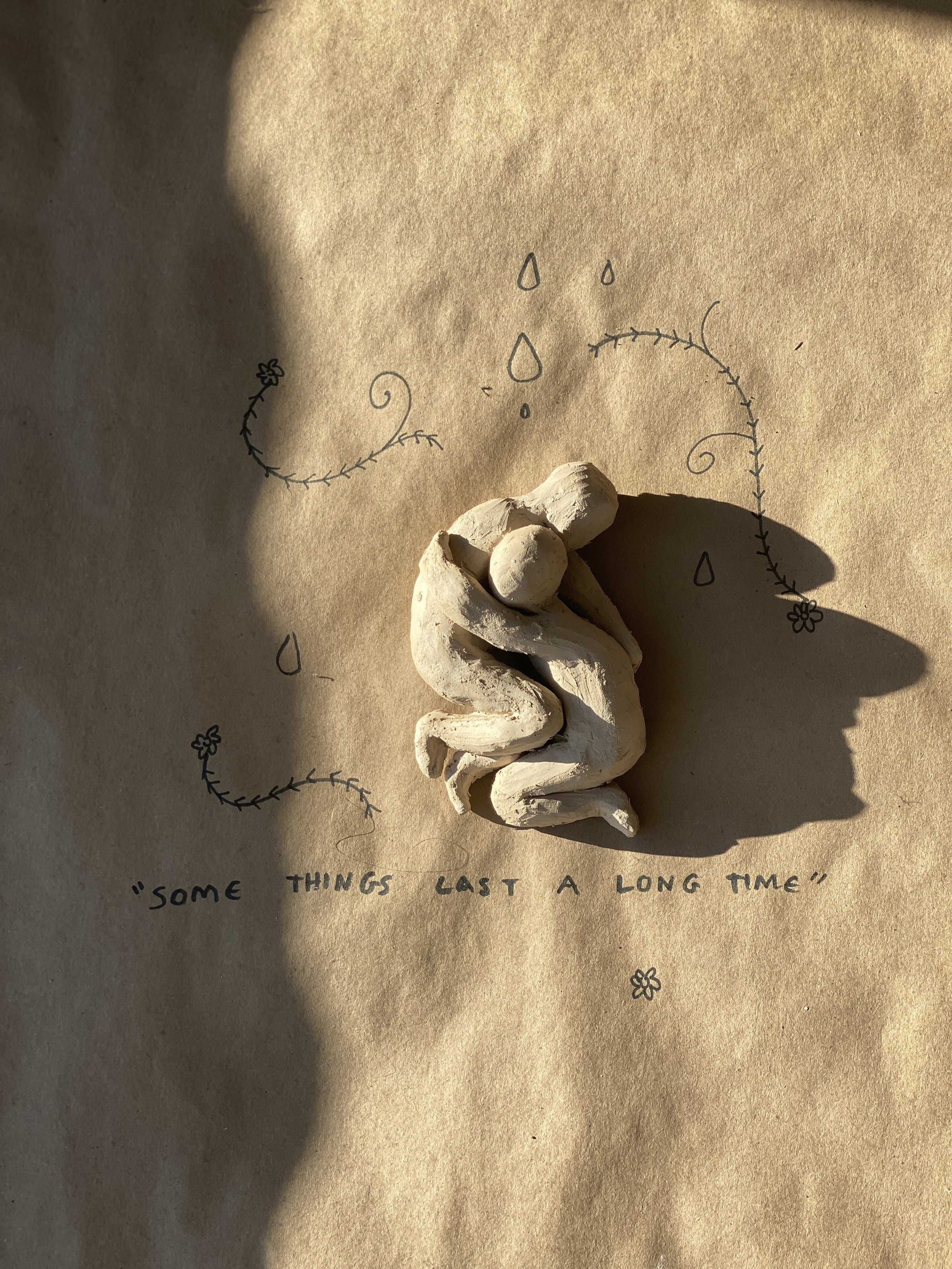
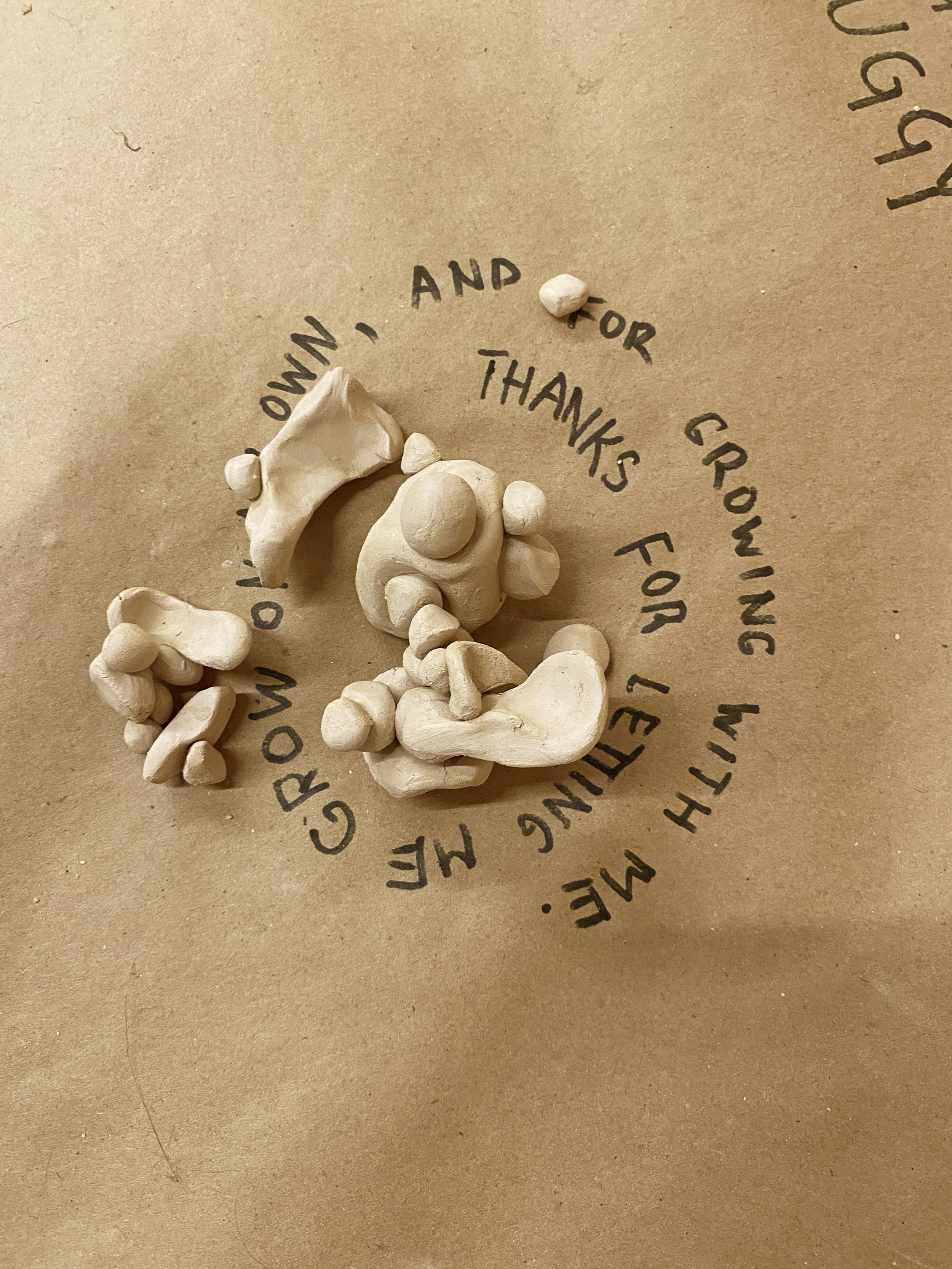
A made a family of alien creatures that lived in the window of the gallery - “the folks that nobody takes care of, take care of each other.” R made The Caring Warrior. They said “The Battle has ended, the warrior has fallen. They may need care in gathering themselves back - into a new world.” C made a window, a bed, a bedside table, a rug and two individuals embracing but also holding each other back. “Care can happen in a nice cosy bed. Care also happens as we help each other leave the bed.” Many such poignant moments emerged in conversation.
Vulnerability has the power to break down walls between people, and this potential is what M touched on when he made a snake and snake charmer out of his lump of clay. He said “The snake represents undesirability, because it has a bad reputation, people are afraid of it. But the snake charmer is different - he takes the time to build a relationship with the snake, and understands that it’s not the sounds but rather the movement of the flute that the snake is drawn to. At the end of the day, it is because of this relationship that they are both able to eat.”
His story stood out to me as it exemplifies how we might bravely muster on towards a more compassionate and caring world. As someone working within the disability space, he recognizes that we have agency in our connections to one another as a powerful tool to challenge the status quo. Radical Care is then standing alongside each other in our mutual strangeness, and choosing to build bridges instead of walls. And if we were to meet a snake along the way, we would know exactly what to do.
